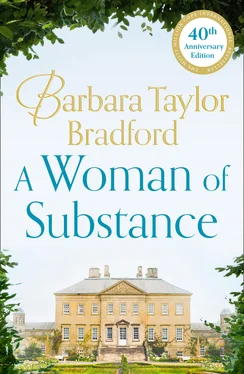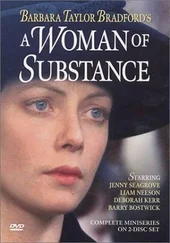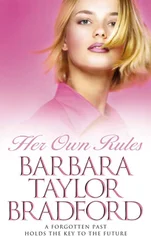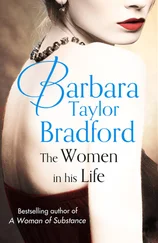His reflective mood was shattered by the sound of horses’ hooves, as Gerald drove rapidly across the stable yard in the trap on his way to the mill. Adam thought then of Gerald and Edwin. He had become aware of so many things this morning, not only about himself but also about his sons. By reason of primogeniture, Gerald would inherit the Fairley lands, the Hall, the mill, and all the other Fairley holdings, with the understanding that he would take care of his brother for his lifetime. But Edwin would receive nothing of real worth and would have to rely solely on the bounty of Gerald. Not a very pleasant prospect, Adam thought. He now recognized that it was imperative that he make proper provision for his younger son in his will. He determined to see his solicitor at the first opportunity. He did not trust Gerald. No, he did not trust Gerald at all.
The Fairley family fortune, now controlled by Adam Fairley, was founded on two sound principles – the acquisition of land and the making of cloth.
The land came first.
Adam Fairley could trace his lineage back to the twelfth century and one Hubert Fairley. A document drawn in 1155, and still in existence in the vault at Fairley Hall, states that Hubert was given the lands of Arkwith and Ramsden in the West Riding of Yorkshire by the Crown. The document was drawn in the presence of Henry II and signed by fourteen witnesses at Pontefract Castle, where the King used to stay on his visits to Yorkshire. With Hubert’s continuing prosperity and growing renown as a ‘King’s man’, Arkwith eventually came to be known as Fairley. It was Hubert who built the original Fairley Manor on the site where the present Hall now stands.
Succeeding Fairleys received more land and favours from their grateful sovereigns. Staunchly Royalist, many of them took up arms in defence of their Crown and country and were admirably rewarded. It was Henry VIII who granted to John Fairley the adjoining land of Ramsden Moors at the time of the Dissolution of the Monasteries, for services to Henry during the King’s ecclesiastical reforms. Later Henry’s daughter Elizabeth Tudor sold ‘the valley of Kirkton on the banks of the river Aire to William Fairley, Squire of Fairley Manor and Hamlet’. Elizabeth I, always desperately striving to replenish the royal coffers, had long resorted to selling off Crown lands. She looked with a degree of favour on William Fairley, for his son Robert was a sea captain who had sailed with Drake to the Indies. Later his ship was part of the great English fleet, led by the intrepid Drake, which sailed into Cadiz harbour and defeated the Armada in 1588. Consequently, the Queen sold the Kirkton land at a fair price. It was the procurement of this particular parcel of land on the river Aire that was a decisive factor in the development of the Fairley fortunes, for the river was to be the source of power for the original mill.
Robert’s son Francis, named after Drake, had no seafaring or military ambitions and, in fact, from this time on there were no more military men in the family until Adam became, for a brief period, a cavalry officer in the Fourth Hussars. Francis, plodding, diligent, but not too imaginative by nature, at least had enough of the merchant’s instinct to foresee the growing importance of so basic and essential a product as cloth. He started a small domestic industry for the weaving of wool at the end of the sixteenth century. The local villagers continued to spin and weave in their cottages, but what had formerly been woven for personal use was now made for sale. It was from this modest beginning that the great Fairley enterprises flowered, and which were to make Francis’ descendants not only rich but the most powerful woollen kings in the West Riding. By the beginning of the seventeenth century, Fairley was already a flourishing wool-manufacturing hamlet with a cropping shop, a fulling mill on the river, and a breached reservoir.
Francis Fairley had joined the cloth to the land.
But without the land there could have been no cloth. Fairley’s location in the West Riding, its geology, and its climate all contributed greatly to the success of the family’s wool-manufacturing business.
Fairley village is situated in the foothills of the Pennine Chain, that great range of interlocking spurs of hills that roll down the centre of England from the Cheviots on the Scottish border to the Peak in Derbyshire, and which is called ‘the backbone of England’ by those who live in its regions. The geology of the Pennine Chain varies. In the north of Yorkshire the hills are of white limestone rock on which grows sweet grass. But there are few springs in limestone country, and these abound with limestone, and limestone water is particularly harsh to fibres. Further down the Chain there is a sudden break called the Aire Gap, through which the river Aire flows towards Leeds. It is just south of Skipton and the Aire Gap that the West Riding begins. Here the Pennine Hills are now composed of dark and hard millstone grit, with a fringe of coal measure and coatings of peat or clay. Very little grows on millstone grit. Oats and coarse grass are its only crops. However, these are the crops that shorthaired sheep feed and thrive on best. Also, coal and grit country has numerous streams which rarely fail, for the moisture-heavy winds that sweep in across the hills from the Atlantic provide abundant rain the year round. The water in these rocky little becks contains no lime. It is soft and kind to fibres. Sheep’s wool and soft water are the two necessities for the making of cloth, and both are plentiful in the West Riding.
And so with these natural elements in their favour the Fairleys’ wool business grew, and especially so in the eighteenth century. But this amazing growth was also due to the enterprise and progressiveness of three Fairleys, father, son, and grandson – Joshua, Percival, and David. All were pioneers in the wool business and, being astute, they recognized the importance of the new inventions coming into being, which would help increase production in the most efficient manner. Whilst some rival manufacturers in the West Riding at first resisted these technological innovations that were to change the social and economic structure of England, the Fairleys did not. They enthusiastically purchased these ‘newfangled machines’, as they were scathingly called by less progressive cloth merchants, and at once put them to advantageous use.
Gerald, heir presumptive to the immense fortune presently in the hands of Adam Fairley, had inherited one singular trait from his forebears, a trait totally lacking in Adam. And this was their love for the wool business. It elicited in Gerald the same intense passion evoked by money and food. When Gerald was on the mill floor, amidst the clattering machinery, he too was in his natural element. He felt completely alive, was filled with a pulsating strength. The strident noise of the rattling machines, which deafened Adam, were not at all discordant to Gerald, who thought they made the most beautiful music he had ever heard. And the malodorous stink of the oily wool, so noxious to his father, was for Gerald an intoxicating perfume. When Gerald saw the great stacks of hundreds upon hundreds of bolts of Fairley cloth, he thrilled with an excitement incomparable to anything he had ever felt in the seventeen years of his young life.
This morning, as Gerald drove down the lower road that cut across the valley from the Hall, he was thinking about the mill; or, more precisely, his father and Edwin in relation to the mill. He did not see the landscape or notice the weather or feel the biting cold. He was lost in the labyrinths of his own convoluted thoughts. Edwin had been neatly disposed of at breakfast. Very neatly indeed. And more precipitously than he had ever imagined possible in his wildest and most exigent dreams. Not that Edwin was a real threat. After all, he, Gerald, was the heir and by birthright everything was his under the law. Yet it had often occurred to him recently that Edwin might conceivably want to enter the woollen business and that he could not have prevented. It would have been an unnecessary nuisance. Now there was no longer any need for him to worry about Edwin. His brother was rendered powerless, and of his own volition. As for his father … well! There was something corrupt in Gerald and he was riven by an immense hatred for his father. Insensitive as he was, Gerald had only a vague glimmering that this feeling sprang from a terrible and consuming envy. He constantly tried to diminish his father in his own mind. He picked on a few of Adam’s traits, which in reality were insignificant and irrelevant, and blew them out of all proportion until they became damning and unforgivable faults. Parsimonious to a point of being miserly, narrow-minded, and parochial, Gerald fumed internally about the money his father spent on his clothes, his trips to London and abroad, and he became enraged and even violent when he contemplated the good hard cash his father was pouring into the newspaper.
Читать дальше












